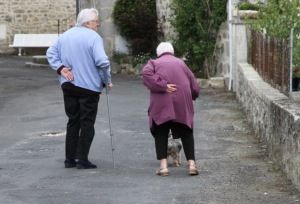News
Denmark opens its first village for dementia sufferers
This article is more than 9 years old.
Small town feel offers a secure environment, but experts worry it’s too remote

A new village in Svendborg is designed for those with dementia (photo: BM10777)
The Danish town of Svendborg on Funen has created the country’s first village for residents suffering with dementia. The idea is to provide dementia sufferers with a more fun and secure existence.
There is a music library, a restaurant with decent food on the menu and a wellness room.
A repurposed brewery had already been serving as an ordinary care centre for the elderly, and construction at the location has created something of a small town feel.
Feels like home
Svendborg Demensby, which is the first of its kind in Denmark, will have room for about 225 residents. Housing is arranged so that it is “safe and interesting” for people with dementia, according to Hanne Ringgard Møller, the chairperson of the Health and Social Committee at Svendborg Municipality.
Pre-packaged meals have been replaced by homemade food that residents themselves can help to create. There are master bedrooms and enclosed gardens.
“You do a lot to stimulate people with dementia,” said Møller, who hopes to see the villages spread across the country.
“There is a great need for better care for people with dementia, but there is also need for greater security.”
Out of sight, out of mind?
Aalborg, Odense and Herning have dementia villages in the planning stages.The Alzheimer’s Association welcomes the idea that municipalities take dementia sufferers into consideration when planning residential areas, but its chief executive Nis Peter Nissen is not sure that separate ‘small towns’ are the best idea.
“It worries us if you build special dementia villages where you exclude those with dementia from the rest of society,” Nissen said.
READ MORE: Danish government increasing efforts to assist dementia sufferers
Traditional nursing homes must be able to take care of people with dementia, contends Nissen, because the majority of nursing home residents suffer from the disease.










































